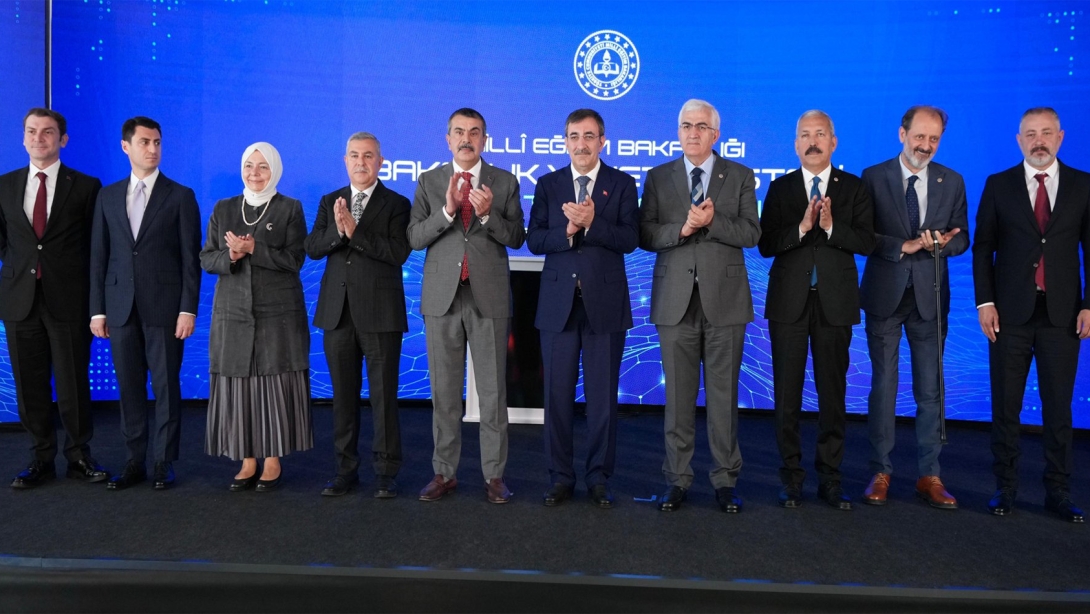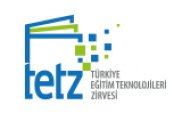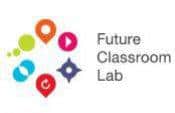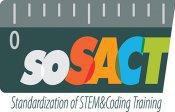
Speaking at the event held at the Mogan Tourism Vocational and Technical Anatolian High School Practice Hotel, Vice President Yılmaz emphasized that the 21st century is an era of transformation, marked by the rapid rise of technologies such as artificial intelligence, quantum computing, big data, and machine learning, which are redefining all aspects of life. He noted that this technological revolution necessitates fundamental changes in both education and educational management practices.
Yılmaz stated that the Ministry Management System (BYS) developed by the Ministry of National Education (MEB) by leading this strategic transformation is not only a concrete reflection of the major transformation experienced in Turkey's public administration, but also a concrete reflection of the major transformation Turkey is undergoing in public administration. Yılmaz noted that this transformation began in the early 2000s with decisive steps toward moving public services to the digital environment, based on a human-centered approach.
"Data Sharing Among Institutions is Crucial"
Yılmaz emphasized that strengthening the e-Government infrastructure has enabled citizens to access public services more quickly, transparently, and easily, thereby enhancing both service quality and efficiency.
Yılmaz highlighted the significant progress Türkiye has made since the early 2000s, noting: "According to the United Nations 2024 E-Government Development Index, Türkiye rose to 27th place among 193 countries. In the European Union's 2024 E-Government Benchmark Report, our country ranked 10th out of 37. I would like to emphasize that the combined population of the European countries ahead of us is only about half of Türkiye's. In e-Government, we rank 2nd in Europe for user-centric services and 5th for transparency, consistently performing above the EU average in many areas. This success stems from the restructuring of our public institutions with digital systems and the strengthening of their operational capacity under the Digital Türkiye vision."
Yılmaz emphasized that applications such as the Ministry of National Education's long-standing MEBBİS system have been among the pioneers of this transformation. He stated: "With today's advances in artificial intelligence and data analytics, we aim to deepen digitalization in the public sector to create more value from data and strengthen evidence-based policy-making. These developments are key both as decision support tools and for effective policy implementation."
'' Within this framework, the National Artificial Intelligence Strategy has been launched under the coordination of the Presidency, training programs for public employees were introduced, and projects to make data sharing between institutions easier were developed. Sharing data securely between institutions is very important, and this will always be done with full respect for privacy and the protection of personal data. Preparations are also underway for an Open Government Data Law to ensure secure data sharing. With our Digital Türkiye vision, our main goal is to move e-Government services to the next level and transition to a Digital State model supported by artificial intelligence and big data.''
"A quiet but powerful revolution in education management"
Yılmaz emphasized that the Ministry Management System (BYS) is a strong example of the Digital State approach in education, noting that it covers all processes—from students and teachers to schools and budgets—while enabling data-driven, fast, and accurate decision-making.
Yılmaz explained that BYS, powered by artificial intelligence and geographic information systems, enables more efficient use of resources. He noted that the system, which enables proactive management at every level from provincial and district administrators to senior ministry officials, has made transparency and efficiency in education an institutional reflex.
Vice President Yılmaz emphasized that the system processes multidimensional data—from historical records to current student mobility, population projections, and international assessment results—and provides strong foresight. He stated: "Today, we have approximately 5.5 million students in primary school. Due to the decline in fertility rates, this number is expected to drop by 900,000 within five years. Therefore, we need to foresee in which regions this decrease will occur and plan our schools and related actions accordingly—not based on today's figures. We must identify trends, anticipate future developments, and make informed decisions starting now."
Cevdet Yılmaz emphasized that, in addition to maximizing the use of institutional capacity in terms of physical infrastructure and school capacity, analyzing student achievement data in the field of education and training would enable faster and more accurate forecasting and implementation of necessary interventions in specific regions.
Yılmaz highlighted that through AI-powered decision trees and data mining applications, the system also analyzes international assessments like PISA, offering strategic support to education leaders. He continued: "Guided by our 2053 vision, we are moving forward with an education management model that not only addresses today's needs but also anticipates future demands. We must do both: meet the urgent needs of the present while staying focused on what lies ahead. This is especially crucial in education, where the impact of decisions may not be seen for a decade or more. Predicting future needs and preparing accordingly—by analyzing evolving professions, disappearing roles, and labor market dynamics—is essential. And we are seeing clear signs that our Ministry of National Education is advancing decisively in this direction."
We are building a system that can predict which school a newborn will attend by the time they reach school age—and identify in advance where and in which subject teachers will be needed, so the right steps can be taken on time. Ministry's Management System represents a quiet yet powerful revolution in education governance. Expanding this transformation beyond education to all public services will significantly strengthen our progress toward the goals of the Century of Türkiye.
"We have launched a data collection process to digitize large datasets."
Minister Yusuf Tekin stated that during his time as undersecretary, they realized it was difficult to make healthy decisions about the quality of education, planning human resources, and using investments efficiently due to problems in analyzing big data.
Minister Yusuf Tekin explained that they launched a data collection process to digitize large-scale data in order to better evaluate the quality of education and use public resources more effectively and efficiently.
He recalled that the Geographic Information Systems (GIS) application was implemented as part of this effort. After taking office as Minister of National Education, he stated that, considering the rapid advancement of technology and the growing use of artificial intelligence, they aimed to launch the Ministry Management System project to further support data-driven decision-making across the Ministry.
"Efficient use of economic resources"
Minister Tekin stated, "This dashboard is a crucial step that will support us in making rational decisions by providing valuable analyses. Even a school principal in the most remote area will automatically see projections on everything—from the number of students at the school to population growth in the neighborhood, including maintenance requests and the quality of education. All decisions will be made based on this data."
Tekin explained that school principals will be able to instantly monitor issues such as absenteeism and unusual changes in grades through the application, enabling them to take appropriate measures alongside teachers. He emphasized that district director of national educationcan view these data on district-level dashboards assigned to them and provincial director of national education can conduct analyses across the entire province using the system.
Minister Tekin explained that analyses can be carried out in schools under Ministry's general directorates through the application, and that he and his deputy ministers canalso carry out analyses on issues related to their areas of responsibility.
Minister Tekin emphasized the great importance of the MEBBYS application, stated:
"What we are doing is a crucial step toward making every decision in our process more rational. As the Ministry of National Education, with nearly 1.2 million dedicated personnel working tirelessly day and night—teachers, administrators, and staff—we are putting immense effort into our mission. My main expectation from this project is that the efficiency we gain, the public perception, and the value of our hard work will be more clearly recognized. I sincerely thank all our teachers, administrators, and colleagues in the Ministry for their sacrifices. The project is being implemented in phases and is currently active in the Ministry's Central Organization. I shared the budget savings with our Minister of Treasury and Finance, Mr. Mehmet Şimşek, who was very pleased. This project will be a vital step in ensuring the efficient use of the nation's economic resources."
At the program, the MEBBYS introduction video was screened.
Click here to watch the video.
Click here to subscribe to the Educational Technologies Bulletin.









